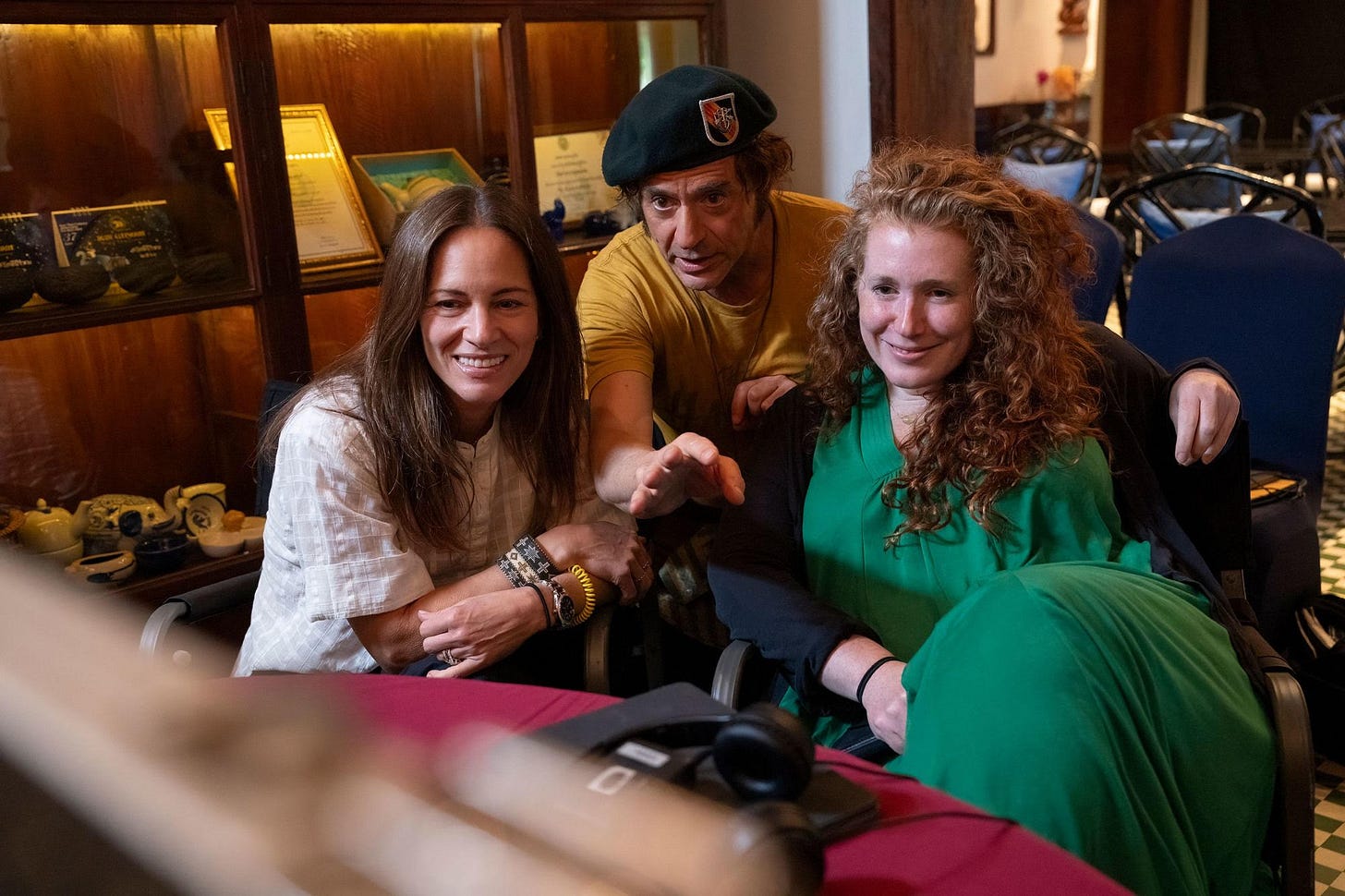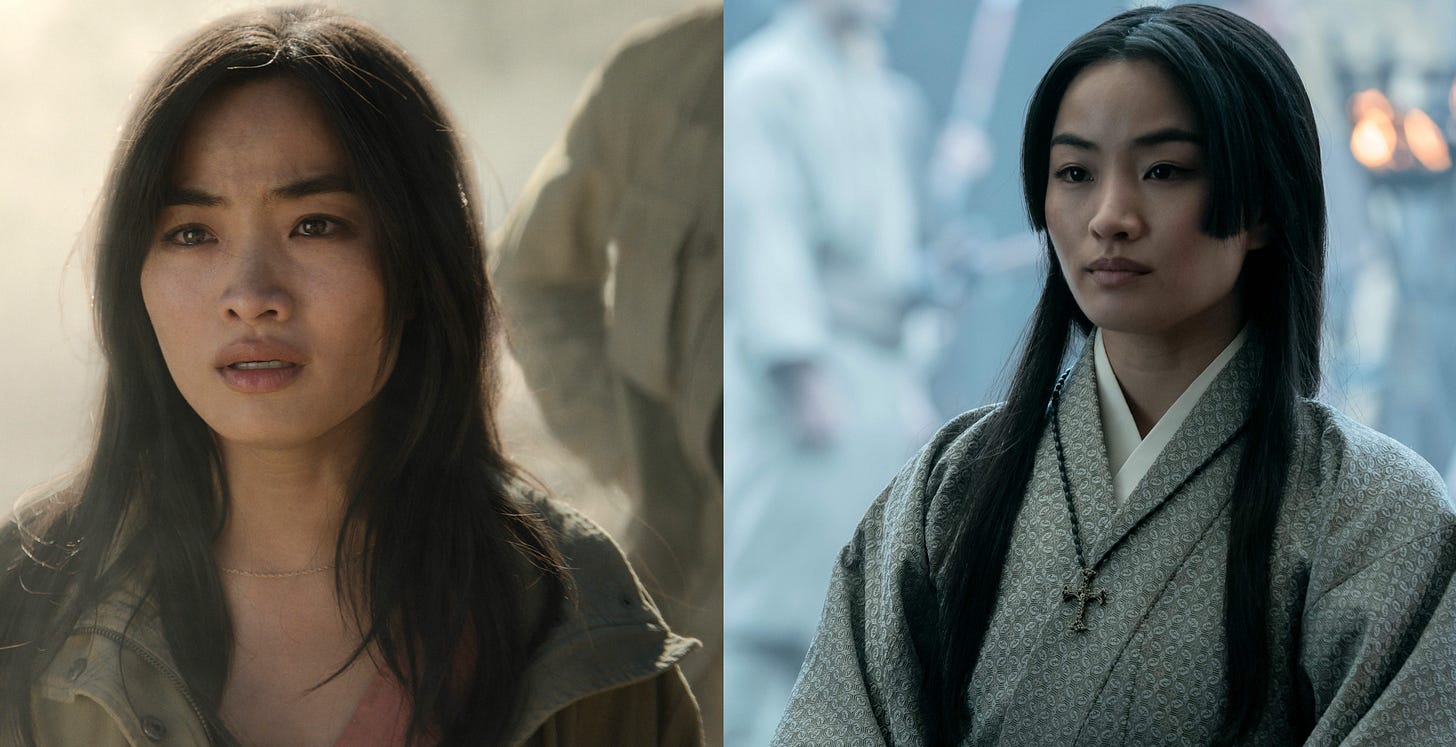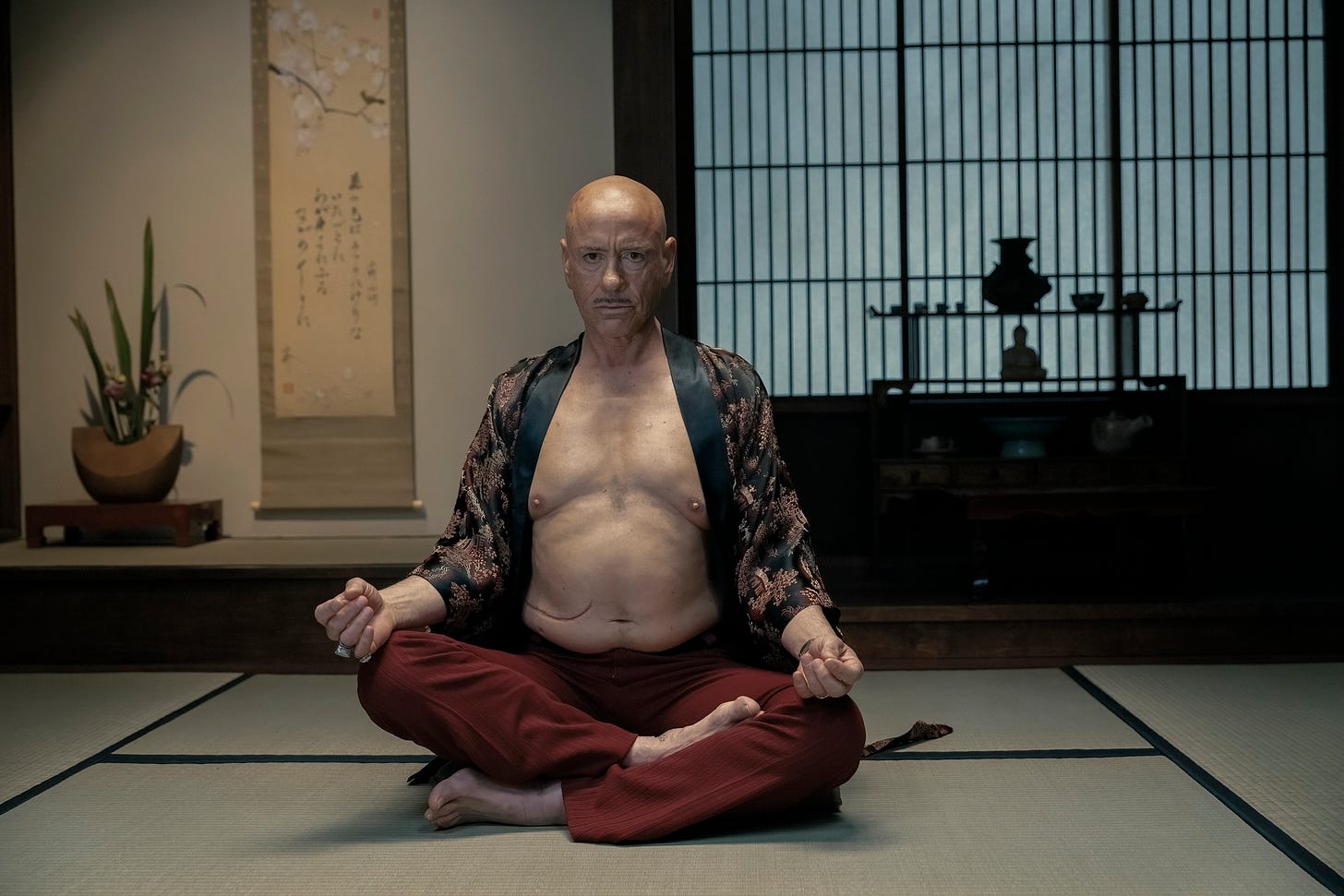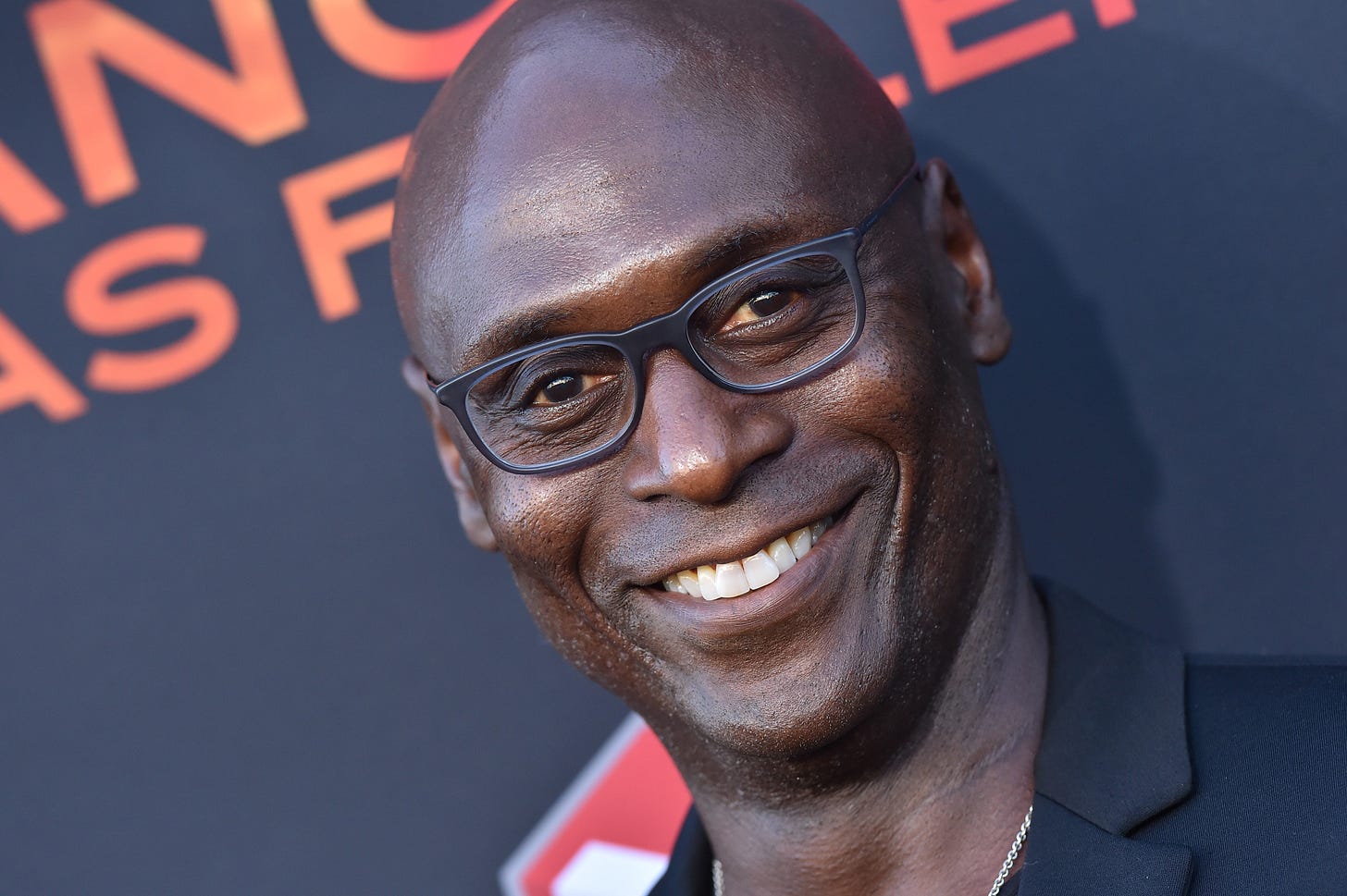Team Downey on How to Keep Convincing Hollywood to Take Risks
Robert Downey Jr.'s 10-year goal for his company? 'Still a desirable interview for The Ankler,' as I talk to Susan Downey and Amanda Burrell. Plus: the actors competing against themselves for an Emmy

Emmy ballots may be an online-only thing these days, but I still like to imagine Emmy voters chewing on their pencils and sifting through stacks of paper this week, trying to figure which shows are worthy of their nomination votes.
I’m doing some sifting myself, and today will continue my deep dive into the acting categories (If you missed Monday’s edition, featuring Bradley Cooper’s cameo and some talking produce, catch up here). Today I’m looking at a good number of actors who are competing against themselves in certain categories, a potential juggernaut nobody sees coming, the chance to say farewell to a television icon — and the one category where the Emmys are catching up with the move toward gender-neutral acting awards.
Read on for my conversation with Susan Downey and Amanda Burrell, who with Robert Downey Jr. form the hive mind that is the production company Team Downey. Fresh off the HBO run of The Sympathizer as well as the premiere of the final season of Netflix’s Sweet Tooth, they have a different take on Hollywood’s infamous risk-aversion, and share some secrets on how to get some really bold, exciting stuff made.
But first, speaking of bold risks — welcome to awards season, Francis Ford Coppola??
We All Live in Megalopolis Now
I have no idea if Francis Ford Coppola’s long-in-the-works epic Megalopolis qualifies as prestige or not, but I couldn’t help but rejoice at Monday’s news that Lionsgate has picked the film up for U.S. distribution, with plans for a fall release.
For people like me that often signals Oscar hopes, but even with the more broad-minded, auteur-friendly Academy we’ve got right now, I’m not sure how far those hopes can go. What would be great, though, is a broad festival season tour, starting at Telluride or TIFF and then baffling/infuriating/thrilling moviegoers at regional festivals from Middleburg, Virginia to Mill Valley, California. Film festivals are at their best when you can walk out of the theater yelling with your companions about what you just saw, love it or hate it — and Megalopolis seems to be tailor-made for that.
And Now, Back to Emmy Season . . .
The Stars Competing Against Themselves

With so many Emmy categories and Peak TV still somewhat chugging along, it’s far from rare to see one actor nominated multiple times in a single ceremony. But competing against yourself in the same category is much rarer, and I’m delighted by the range of actors who are pulling it off this year.
John Goodman, who plays two very different patriarchs on The Righteous Gemstones and The Conners, has two bids in lead actor in a comedy. On the actress side in comedy there’s Rose Byrne, fearlessly leading two somewhat under-the-radar Apple comedies, Physical and Platonic.
Anna Sawai had an undeniable breakout performance in Shogun, and she’s likely to win the best actress in a drama award for it — but first she’s got to get past herself, eligible again for her role on Monarch: Legacy of Monsters. Walton Goggins is a strong contender himself for best actor in a drama series for Fallout, but in the supporting actor in a comedy category he’s up against himself for both The Righteous Gemstones and I’m a Virgo.
But nobody is as accomplished at self-competition as The Wire veteran Wendell Pierce, who has been submitted as a supporting actor for three different drama series: Elsbeth, Power Book III: Raising Kanan and Tom Clancy’s Jack Ryan. And speaking of Elsbeth . . .
Is Elsbeth a Juggernaut We Don’t See Coming?
The latest spinoff from the Good Wife universe, with Carrie Preston leveling up her quirky supporting character to heroine status, Elsbeth premiered on CBS in the spring with a wave of affection and solid ratings. Even so, awards pundits and the Emmys themselves tend to ignore network shows these days, so Elsbeth has been a bit outside the pack of pre-voting predictions.
But the show has submitted a whopping 16 actors for consideration, many of them Broadway legends in the guest actor and actress categories, where being famous really doesn’t hurt. With The Bear and Only Murders packing most of the star power into the comedy categories, Elsbeth has a lot of room to operate. I wouldn’t be surprised if multiple actors make it in — and hopefully also Preston, who has tougher competition in the lead actress category, but many decades of industry goodwill to get her there.
Lance Reddick’s Swan Song
When he died in March 2023 at the age of 60, Lance Reddick was still a prolific actor, and indeed multiple projects in which he had a role have been released following his death. Two of them — The Caine Mutiny Court Martial, which was the final film from the legendary William Friedkin, and the latest season of Bosch: Legacy — now have Reddick eligible for the Emmys for the final time.
Despite memorable roles on The Wire, Lost, American Horror Story, Bosch and even Key & Peele, Reddick was never nominated for an Emmy in his life. Doesn’t it seem like we should take the opportunity to fix that?
Emmys Embrace Gender-Neutral Awards — In One Category
Though smaller awards bodies like the Indie Spirits, the Gothams, and the Brit Awards have done away with gender-divided acting categories, larger groups like the Emmys and Oscars have been slow to make the change. The exception at the Emmys, it turns out, is in the relatively obscure category for performer in a short-form series.
As you might imagine it’s a real grab-bag of options, from performers in sketch shows — Tim Robinson has won the last two years running — to actors in online-only shorts. This year a ton of the eligible contenders come from the sci-fi series RZR, including Mena Suvari and David Bianchi, but then there’s also Eric André for his late-night parody show and Michael Esper for a series of shorts that are connected to the world of Fallout, in which he plays a character named “Brain on a Roomba.”
One could argue that if you can have people of all genders competing against each other here, you could do it for all the other acting categories . . . but the Emmys do not seem to be quite ready for that conversation.
Getting the Team Together

HBO’s limited series The Sympathizer, premiering just a month after the Oscars this spring, felt like a bold statement of purpose for star Robert Downey Jr., following up his first Oscar win with yet another fearless performance.
The Sympathizer might have been an even bigger statement of purpose for Team Downey, the production company founded by Downey and his wife Susan Downey, and which brought in Amanda Burrell as president in 2011. The company got its start on Downey’s non-Marvel projects like The Judge and Dolittle, but in recent years has expanded into a fascinating and wide range of TV projects, from the new Perry Mason to the children’s Netflix series Sweet Tooth, which just wrapped its third season.
Burrell describes her work alongside the Downeys, who have been married since 2005, as a “constant conversation”; Robert has a much more detailed explanation. “When I saw Burrell in the lobby of a Bangkok hotel with her husband Charlie and her three kids, jet-lagged, disoriented, and ready to kick ass while still somehow managing to put family first, I was reminded that we are cut from the same cloth,” he wrote in an email to The Ankler. “Our Team Downey motto is ‘we work weekends.’”
I caught up with Susan Downey and Burrell via Zoom last week, as they were celebrating the end of Sweet Tooth and explaining their “sniper shot” approach to getting networks to take risks on their biggest ideas. There’s no master plan at Team Downey, but when I asked Robert (also by email) what he’d like the company to be in 10 years, he had what I think is a pretty good answer: “Still a desirable interview for The Ankler.”
Katey Rich: Sweet Tooth and The Sympathizer are so different from each other, as was Perry Mason. That seems very deliberate to me. Are you actively trying to spread across as many genres as possible?
Susan Downey: We like things that create new opportunities and new challenges. So we’re not going to revisit something if it feels familiar. There’s a similarity in that they all have different versions of world building and they also are all driving through character. So we just fall in love with the characters and the story and then say, will this feel fresh to us and therefore fresh to an audience?
Amanda Burrell: I wish I could say there’s a strategy. You kind of have to just believe in it, be passionate about it, love the people you’re working with, and then hope that a buyer wants to make it.
KR: With Sweet Tooth, which is so big and ambitious especially for a kids show, was there a goal to really push the boundary for what kids TV can be?
AB: We have children, but also kids are really capable of connecting and being emotional. Life and death in a lot of ways is very natural to them. We wanted to go to areas of real darkness and say that you can’t trust every adult that comes into your world, but also show it from his point of view where he actually sees the good often when there isn’t. But we always wanted to push it.
SD: And you had the protection of a genre. With genre, you get to talk about things in a way that isn’t on the nose. Even to the very end, we were celebrating our little deer boy show and it’s like, are we crazy to think that this is going to work?
KR: Speaking of big swings, let’s get to The Sympathizer. Do you remember which part of that felt like the biggest challenge to you?
SD: The things you thought might be challenging weren’t the most challenging things. Making sure it was accessible to an audience was always a top priority from the very beginning . . . Robert as a part of it was helpful in that regard. When you read a script, it’s all translated into whatever language you need to read it. The collaboration in front of and behind the camera, all of that was easy.
But it’s very different when you’re watching it. Once we were in post, making sure that accessibility for the viewer was there to me was the most challenging. And I don’t think we thought about that until we were in that process.
AB: Tone was also a really big challenge. There’s this very real story that we’re telling that’s so emotionally charged. That’s the point of view of the Vietnamese people toward the war that was theirs that we were a part of. Then inside of that, Robert had to be a pretty absurd group of characters, especially the professor. So it was making sure that those characters also weren’t just one dimensionally antagonistic. Again, when you’re reading it, it seems fun. But then when you’re looking at that professor, you’re like, is this going to work?
SD: When you have someone like director Park [Chan-wook] involved, you do have a level of confidence that we’re going to be able to pull it off, but it doesn’t make it easy.
KR: So much talk around Hollywood these days is about how risk-averse the industry is. Where do you feel like the industry is headed on taking these big swings?
AB: It’s a little bit more like sniper shots to networks versus taking projects out to the town, which our agents don’t love. They love a bidding war. The Sympathizer was an example where we were like, it has to be HBO. We know that Francesca Orsi is going to totally be inside this with us. When you’re taking risks, you have to really know that your partners are in lockstep with you.
So a lot of what we’re focusing our efforts on is like, where are Apple’s edges? What are they really excited about? And then we can push it once we’re in there.
SD: Budgets are another thing that we just have to continue to monitor. Everybody is trying to pull down their budgets. Shows we’ve done in the past are not super cheap shows, but we talk a lot about not wanting to compromise. We’re not folks who do that kind of ambient television really well, where you can be doing three other things while the show’s playing in the background. We like to try and engage an audience, and I do think that all the places have an appetite for that, but as Amanda said, it’s sniper shots. It’s just making sure that we are really passionate. You’re going to have to fight the whole time to deliver something that is at a certain level.
AB: It’s all about bringing people into the passion and sharing that passion. So much of what we do is just create that swirling energy where everybody feels safe and secure. Like, no, no, we’re doing the right thing. Let’s keep going.
KR: You’re kind of psychiatrists in some way, holding their hands.
SD: Oh, I mean, come on. It’s half the job of a producer.




